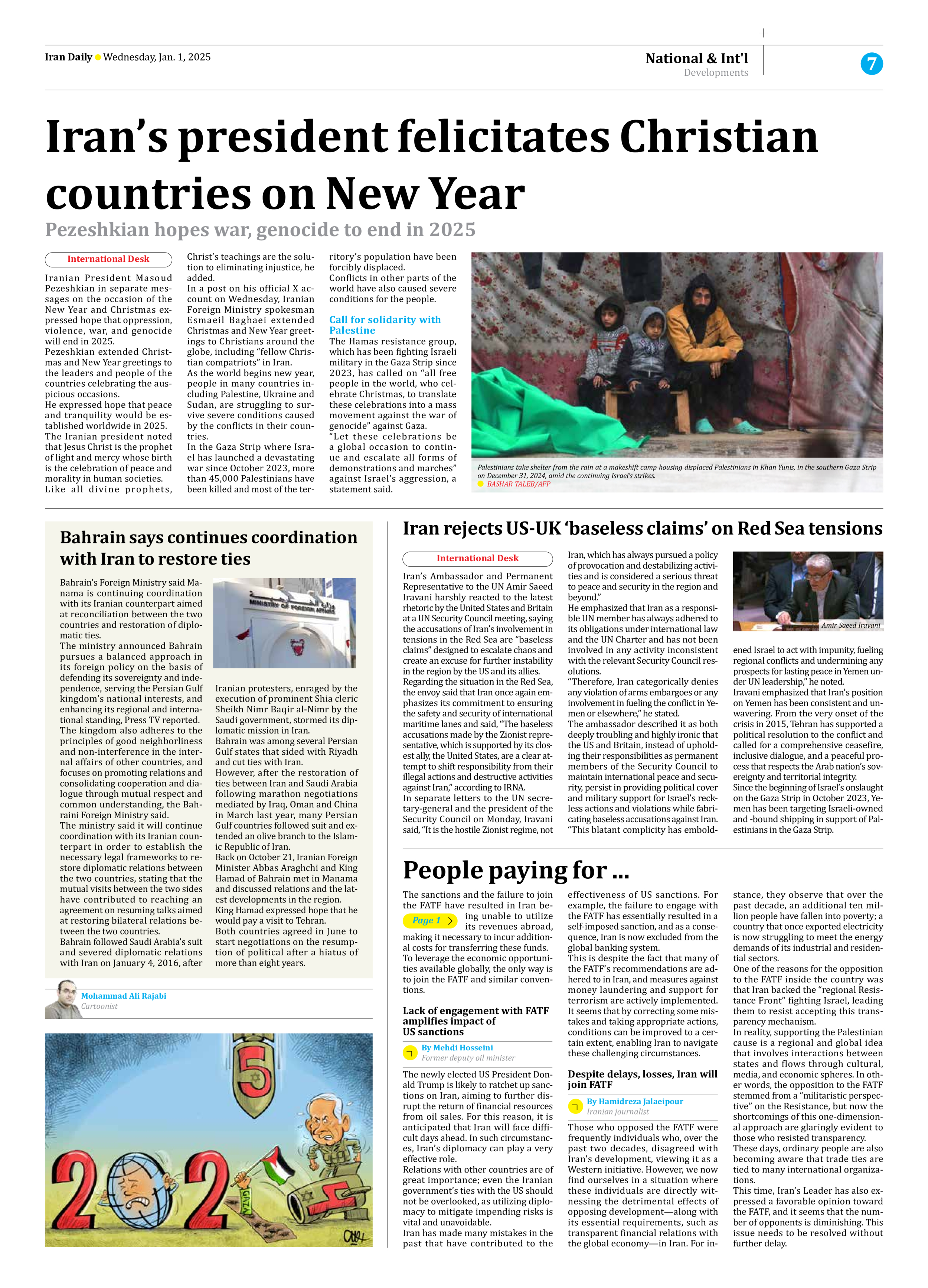
People paying for ...
Page 1
The sanctions and the failure to join the FATF have resulted in Iran being unable to utilize its revenues abroad, making it necessary to incur additional costs for transferring these funds.
To leverage the economic opportunities available globally, the only way is to join the FATF and similar conventions.
Lack of engagement with FATF amplifies impact of
US sanctions
By Mehdi Hosseini
Former deputy oil minister
The newly elected US President Donald Trump is likely to ratchet up sanctions on Iran, aiming to further disrupt the return of financial resources from oil sales. For this reason, it is anticipated that Iran will face difficult days ahead. In such circumstances, Iran’s diplomacy can play a very effective role.
Relations with other countries are of great importance; even the Iranian government’s ties with the US should not be overlooked, as utilizing diplomacy to mitigate impending risks is vital and unavoidable.
Iran has made many mistakes in the past that have contributed to the effectiveness of US sanctions. For example, the failure to engage with the FATF has essentially resulted in a self-imposed sanction, and as a consequence, Iran is now excluded from the global banking system.
This is despite the fact that many of the FATF’s recommendations are adhered to in Iran, and measures against money laundering and support for terrorism are actively implemented. It seems that by correcting some mistakes and taking appropriate actions, conditions can be improved to a certain extent, enabling Iran to navigate these challenging circumstances.
Despite delays, losses, Iran will join FATF
By Hamidreza Jalaeipour
Iranian journalist
Those who opposed the FATF were frequently individuals who, over the past two decades, disagreed with Iran’s development, viewing it as a Western initiative. However, we now find ourselves in a situation where these individuals are directly witnessing the detrimental effects of opposing development—along with its essential requirements, such as transparent financial relations with the global economy—in Iran. For instance, they observe that over the past decade, an additional ten million people have fallen into poverty; a country that once exported electricity is now struggling to meet the energy demands of its industrial and residential sectors.
One of the reasons for the opposition to the FATF inside the country was that Iran backed the “regional Resistance Front” fighting Israel, leading them to resist accepting this transparency mechanism.
In reality, supporting the Palestinian cause is a regional and global idea that involves interactions between states and flows through cultural, media, and economic spheres. In other words, the opposition to the FATF stemmed from a “militaristic perspective” on the Resistance, but now the shortcomings of this one-dimensional approach are glaringly evident to those who resisted transparency.
These days, ordinary people are also becoming aware that trade ties are tied to many international organizations.
This time, Iran’s Leader has also expressed a favorable opinion toward the FATF, and it seems that the number of opponents is diminishing. This issue needs to be resolved without further delay.







